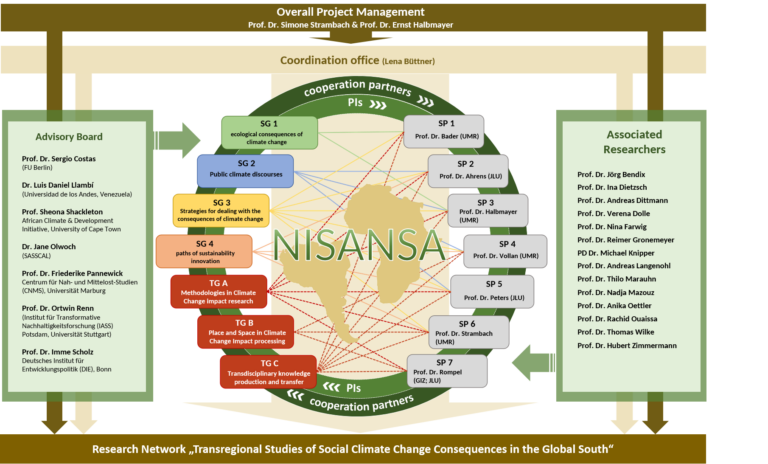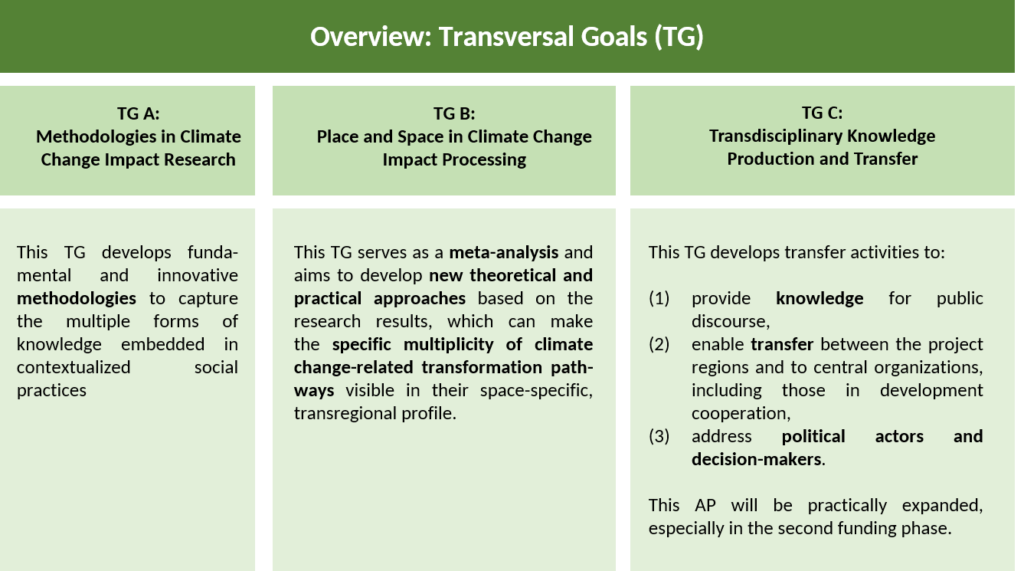Project
SOCIAL CLIMATE CHANGE IMPACTS AND SUSTAINABILITY INNOVATION IN SOUTHERN AFRICA AND NORTHERN SOUTH AMERICA (NISANSA)
The question of adequate social reactions to the consequences of climate change is one of the central challenges for the future. Western discourse on the impacts of climate change mainly focuses on the Global North and selected regions (Arctic, Pacific Island states). But what are the consequences of climate change in and for the countries and regions in the Global South? How do they address climate change and its consequences? What are the social implications for these regions, and what possibilities and potential exists to react to them? Which programs and institutional structures are used to address the impacts of climate change? Which practices of sustainable action emerge (sustainability innovation)? And what are the consequences for the Global North, Europe, and Germany?
The joint project between the UMR and the JLU investigates these questions from a transregional and comparative perspective, focusing on Southern Africa and Northern South America. The aim is to generate sound knowledge about the social consequences of climate change in these regions. The project aims systematically complement current climate research with regional and social science perspectives. Natural sciences and statistical climate models primarily characterize climate research. However, climate change is not only a matter of climatological and ecological change, but it also implies political and cultural responses and societal transformations.
In a group of seven subprojects, the interdisciplinary joint project between the Philipps-University of Marburg and the Justus-Liebig-University of Giessen has been investigating these questions in countries in southern Africa (Angola, Botswana, Malawi, Mozambique, Namibia, South Africa) and northern South America (Brazil, Ecuador, Colombia, Venezuela) since July 2021.


